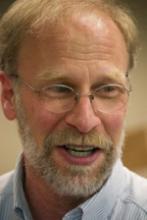What Is It
The criminal justice system often relies on the testimony of eyewitnesses to get convictions. Yet more and more, psychological science demonstrates how unreliable eyewitness reports can be. Moreover, jurors have all kinds of cognitive biases and unconscious influences, and they rely on dubious folk psychological theories when assessing evidence. So, how should psychological science be used to improve our justice system? Is there a way to figure out whether a particular eye witness report is reliable? Or for a truly just system, must we forbid all testimony that depends on the capricious faculty of memory? John and Ken take the stand with Daniel Reisberg from Reed College, author of The Science of Perception and Memory: A Pragmatic Guide for the Justice System.
Listening Notes
Increasing amounts of research are pointing to the unreliability and fickle nature of human memory — can we trust it in a courtroom? Ken expresses serious worry about the use of eyewitness accounts in court when the stakes are so high. John responds by accusing him of being an alarmist. He insists that despite some inaccuracies, witnesses remain a indispensible part of the criminal justice system that cannot be completely disregarded.
John and Ken are joined by Daniel Reisberg, Professor of Psychology at Reed College. Reisberg discusses several examples of the malleability of memory that he has come across in his research, including how his team were able to plant false memories of entire episodes that never happened. He goes on to explain how similar false memories could inadvertently be created in an eyewitness's mind through police questioning. To shed light on how one should judge the reliability of a memory, Reisberg leads John and Ken through the evaluation of a hypothetical eyewitness account.
The first question from the audience asks how we can be better eyewitnesses ourselves. When identifying a face, Reisberg explains how focusing on memorizing key features is actually unhelpful; the best method is surprisingly much more holistic. Other questions point to the future of the criminal justice system, the effect of personal beliefs on memory, and whether modern technology has affected our memory. The episode ends optimistically, with Reisberg claiming that despite the complications surrounding memory the criminal justice system is nevertheless headed in the right direction and slowly improving.
- Roving Philosophical Reporter (seek to 7:27): Shuka Kalantari speaks with Angel Gonzalez, who spent 20 years in jail because of a false eyewitness identification.
- 60-Second Philosopher (seek to 46:14): Ian Shoales muses over the many ways that the mind's eye is also easily swayed.




Comments (2)
Harold G. Neuman
Friday, September 7, 2018 -- 12:32 PM
I looked back at the remarksI looked back at the remarks of others and my own on your original post. Since that time, I have dove headfirst into the writing of various cognitive scientists (even, perish the thought, Freud) on how we perceive the things we see, and how, many times, you see things differently from me; I see them differently from Fred; Fred's reality is fundamentally flawed (or vastly more of a gift than any of us can imagine in any best-possible world); and those truly creative people have certain cognitive advantages over all the rest of us. Another post presented, somewhere along the history of PT, talked about cognitive biases, and we have even talked about the loss of the lobster load.(see David Livingstone Smith's recent post). Anyway, I was going to say something different about perception, memory and justice, but after finishing Rawls' historical tome, I 'just' could not think of anything 'epiphanical' to offer. Thanks for your patience, over these last four years or so. Love the stimulation Philosophy Talk brings to my mundane world.
Harold G. Neuman
Saturday, September 29, 2018 -- 12:41 PM
A couple of related quotesA couple of related quotes arose while reading Hume, specifically his ENQUIRY concerning HUMAN UNDERSTANDING:
pg. 117, section 4, entitled Sceptical Doubts about Understanding: "...I must confess, that a man is guilty of unpardonable arrogance, who concludes, because an argument has escaped his own investigation, that therefore it does not really exist..." and, pg. 171, under section 10, Of Miracles:"...We frequently hesitate concerning the reports of others. We balance the opposite circumstances, which cause any doubt or uncertainty; and when we discover a superiority on any side, we incline to it; but still with a diminution of assurance, in proportion to the force of its antagonist..." and, "...We entertain a suspicion concerning any matter of fact, when the witnesses contradict each other; when they are but few, or of a doubtful character; when they have an interest in what they affirm; when they deliver their testimony with hesitation, or on the contrary, with too violent asseverations..."
Mr. Hume had a pretty good grasp of human understanding, even though the original work ,A Treatise on Human NATURE, was a flop. The national events of the last week have been troubling. But people are sick of it, some on record as having said: WHO CARES? I have 'sceptical doubts' about the immediate future...